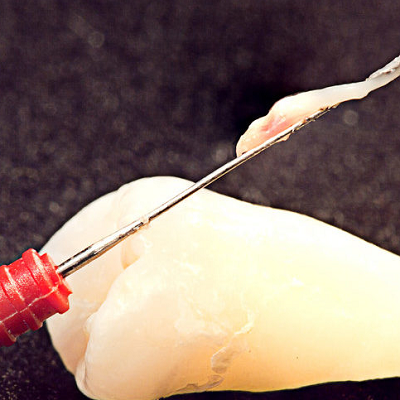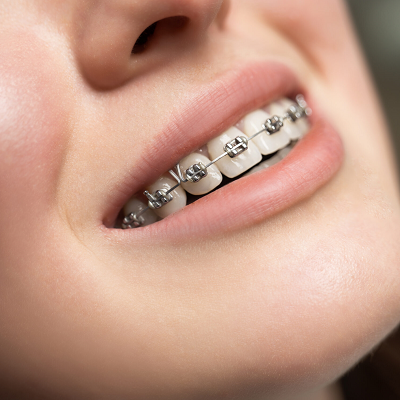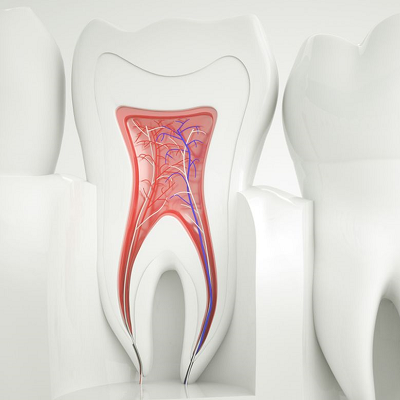
Have you ever been informed that you might require a root canal? If so, you may be contemplating, among various questions, largely, Does the Root Canal Remove the Nerve? This is a very commonly asked question, perhaps because the expression “root canal” itself sparks fear or confusion. Nevertheless, in reality, root canal therapy involves removing the nerve from the inside of the tooth; the procedure intends to save your tooth and alleviate the pain. Let us delve into how a root canal is performed at Royal Cosmetics Surgery Clinic Islamabad and the reasons why one may be needed.
What a Root Canal is?
A root canal is a dental process for saving a tooth that is crunched, damaged very badly or infected. Inside your tooth, the pulp is composed of soft tissues, nerves and blood vessels. When the pulp is infected or inflamed due to decay, trauma, or rework at the teeth, one has to do a root canal to eliminate that infected pulp and save the tooth from further damage. Cleaning and disinfecting the pulp chamber is followed by sealing the tooth against re-infection.
Does Root Canal Remove the Nerve?
Yes, during root canal surgery, the nerve within the tooth is taken out. The pulp has nerves, blood vessels, and connective tissue. When infected or damaged, it creates severe pain. The pulp removal, with the nerve, helps relieve discomfort and infection. Hence, root canal treatment is often related to relieving pain.
Removing the nerve does not affect how one chews or feels temperature changes. This nerve mainly takes care of sending pain signals when the tooth has been damaged. If the nerve is taken away, there is no more pain experienced in the tooth, but it can be placed in use for biting or chewing without harm.
Why Do People Need Root Canal Treatments?
Even if the pulp inside the tooth becomes infected or dies, a root canal will eventually be needed as the pulp inside the tooth needs to be removed. Tooth needing a root canal is generally due to the following:
- Deep Decay: Usually, if left undiagnosed for some time, the cavity may just keep growing and eventually reach into the pulp, resulting in an infection.
- Cracked Tooth: A crack or break in a tooth can allow bacteria to travel into the pulp, leading to inflammation (and subsequently, extra pathologic changes).
- Injury: Any physical trauma (tooth hits) may cause damage and trauma to the pulp, which may lead to an infection.
- Trauma: More fillings or whatever in a tooth will have increased probability that one will reach pulp.
The Root Canal Procedure:
It may take one or two appointments depending on the extent of the infection and how complex the tooth is. Here is a rundown of what you should expect:
- X-ray: An X-ray of the affected tooth will be taken by your dentist to understand the extent of damage and see if there is any infection present in the bone surrounding it.
- Anesthesia: This is local anesthesia given to numb the area around the tooth so that you won’t feel anything when this is done.
- Access Opening: The dentist will use a tiny drill to open an area in the crown (top) of the tooth to the pulp chamber.
- Pulp Removal: Pulp will be excised by specialized instruments together with the nerve because it is infected or damaged.
- Cleaning and Shaping: The space inside the tooth is cleansed and shaped in preparation for filling.
- Filling: The filled cavity will be cemented with a rubbery material that fills the cavity to seal the tooth.
- Restoration: In severe injuries, the tooth may have to be crowned or given a filling to restore its strength and functionality.
After-Procedure Care:
Root canal therapy often causes pain or tenderness for a couple of days. The pain is typically mild and can be managed by over-the-counter pain medications. It is important to follow your dentist’s post-root canal recommendations, which include no chewing on that side and continuing great oral hygiene to ensure no reinfection.
Advantages of Root Canal Therapy:
- Infected nerves are removed, giving relief from pain.
- A natural tooth is preserved instead of extracted.
- By sealing the tooth from further infection.
- Returns the tooth function to allow eating and speaking normally.
Root Canal Alternatives:
However, some alternatives can be applied according to how severe the infection is:
- Tooth Extraction: An extraction or removal may be performed in case of too severe tooth damage.
- Dental Implants: If it is needed to remove the tooth, a dental implant can then be placed to replace that missing tooth.
Root Canal Treatment Cost in Islamabad, Pakistan:
Usually, a root canal treatment will cost between PKR 20,000 per tooth; this price varies with the following considerations:
A factor that Affects the Cost:
- Tooth Position
- Infection Severity
- Post-Operative Restoration
- Reputation of the Clinic
Why Choose Royal Cosmetic Surgery Clinic Islamabad?
Royal Cosmetic Surgery Clinic Islamabad offers you the best dental care in a warm and cozy ambiance. The latest techniques are carried out by a skilled dentist, Dr. Usama Hayat Ghauri, along with the use of up-to-date equipment for optimum results in root canal treatment. Whether you have a toothache or need preventive care, we strive to bring back your smile with the most effective treatments possible.
Book Your Consultation With us!
If you have decided to go for a root canal treatment, then please visit any of the Royal Cosmetics Surgery Clinics PK for consultation. The dental team will guide you through the treatment, explaining everything in detail for a better understanding to make a proper choice of oral health. Do not waste your life with pain. Call us now and get your first step for a brilliant smile appointment.






